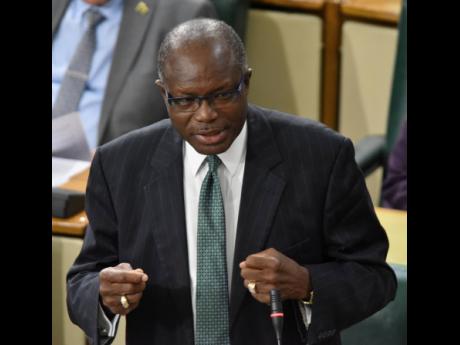Editorial | Growling at the Integrity Commission
Jamaicans should be vigilant against an emerging political coalition at Gordon House to defang the Integrity Commission (IC), thus making it useless against marauding public officials.
The first step in the IC’s weakening, it seems, is a cross-party, hyena-style encirclement, probing at every scab, real or perceived.
Indeed, no one appears embarrassed to be part of a pack led by the ill-mannered governing party member, Everald Warmington, to whom, in other circumstances, some of the lot would give a wide berth.
Of course, there are things about the way the IC functions that need fixing. A case in point is its recent ham-fisted handling of a report into whether Prime Minister Andrew Holness, several years ago when he was education minister, influenced the award of contracts to a friend for community maintenance works in his parliamentary constituency.
The commission caused to be tabled in Parliament a report in which its investigator concluded that Mr Holness had broken the procurement rules, only to 24 hours later unveil to legislators a ruling by its prosecutor that the prime minister hadn’t broken the law.
The commission insisted that, in releasing the documents, it acted in accordance with the legislation governing its operations.
CREATIVE THINKING
This newspaper, as do many other people, holds that, with creative thinking, rather than a robotic action, the IC could have found a way to accommodate the simultaneous tabling of the two reports and avoid the 24 hours of political angst that engulfed Jamaica.
Their missteps in that matter provided an opening for another line of attack by those who would prefer for there not to be an institution like the Integrity Commission, or, if one existed, that it is substantially weakened. So, the recommendations brought by politicians, ostensibly to reform the IC, won’t make it work better, or be more efficient in identifying and rooting out corruption. They are more likely to cause it to atrophy.
For instance, Mr Warming has said nothing about the score of recommendations the commission has made in its annual reports, and to Parliament, for amendments to the Integrity Commission Act, and other laws, to enhance the fight against corruption. Among them is the call for the removal of the gag clause that prevents the commission from even acknowledging that it has opened an investigation until the probe has been completed and a report has been tabled in Parliament.
But Mr Warmington wants to eliminate the privilege afforded to the commission’s reports, even after they have been tabled in the House.
OPEN TO BE SUED
That would mean the reports’ authors, commission members, and anyone else, including the media, who quoted from the reports would be open to be sued for damages by people who claimed to have been defamed in them.
Mr Warmington also wants to excise the IC’s independent prosecutor and have corruption prosecutions again become the sole purview of the director of public prosecutions (DPP) – which would probably lead to the bunging up of that office, with little action against the corrupt. It was precisely because that approach didn’t work well, as well as to send a signal that Jamaica was serious about tackling its crisis of corruption, that the former leader of Mr Warmington’s party, the then prime minister, Bruce Golding, proposed an independent prosecutor, without infringing on the constitutional powers of the DPP. The position survived Mr Golding’s departure and made it into law.
It is easy to pick at scabs and whinge about personal experiences in past IC reports. But the problem of corruption in Jamaica is real, deep and endemic. Fixing it requires a strong and independent anti-corruption body.
Such an institution can’t be above criticism, of which this newspaper has several about the IC. But effectively dismantling, or making it ineffectual under the pretext of reform, won’t do.
So, while a few of Mr Warmington’s suggestions would otherwise make sense, they are, in this circumstance, highly questionable. We, in fact, are having difficulty getting past the smell test.

